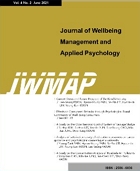- 권한신청
- E-ISSN2586-6036
- KCI
Effects on Consumers' Behavior through Psychological Brand Community of Well-Being Consumers
KIM, Kyong-Hwan (Korea Institute of Human Resources Development in Science and Technology)
Abstract
Purpose: The purpose of this study was to identify the factors that enhance brand identity among the four relationship factors in the well-being industry: brand relationships, product relationships, employee relationships, and other customer relationships, and to examine the impact between consumers' brand identity and committed behaviors performed by consumers of brand equality, promotion, cooperation, and advocacy. Research design, data and methodology: The models designed in this study were proposed based on prior studies and the survey was conducted on well-being consumers for empirical testing of the models. Valid samples of a total of 350 data collected were analyzed using the SAS 9.4 statistical package programs, and the results for the structural equation model analysis are as follows. Results: First, the three relationships in the brand community have all been shown to improve brand identity, but the product relationship has had a negative significant effect. Second, consumers' brand identity has had a strong effect of promoting both committed behavior, cooperation and advocacy. Conclusions: Based on these analysis results, the theoretical implications of the well-being industry were presented, and effective practical implications were presented to the well-being operators and the community operators of well-being brands.
- keywords
- Brand Synonymous, Psychological Brand Community, Consumer Commitment Behavior, Well-Being Brand
- 다운로드 수
- 조회수
- 0KCI 피인용수
- 0WOS 피인용수














